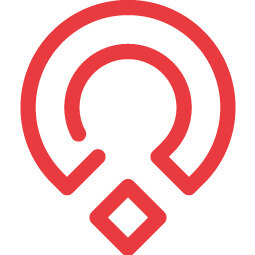Most companies get an ATS to solve existing problems, so it can be unpleasant when there are challenges that inhibit implementation of the system. Fortunately, anticipating these challenges can help your company to be prepared, so that implementation and subsequent use goes as smooth as possible.
Our 2025 Preferred HR Software Partners

BambooHR Software
By BambooHRCompany Name
BambooHR
Suitable Company Sizes
Small, Medium, Large
Support Available
Android, IOS, Web Browser, Windows

Workable
By WorkableCompany Name
Workable
Suitable Company Sizes
Small, Medium, Large
Support Available
Android, IOS, Web Browser, Windows

Zoho Recruit
By Zoho RecruitCompany Name
Zoho Recruit
Suitable Company Sizes
Small, Medium
Support Available
Android, IOS, Web Browser
Issues with Integration
Issues integrating ATS software can be a real thorn in the side when you are pushing to get to the “go live” date quickly. This is a challenge that should be addressed during the ATS selection process by making sure that the chosen system is compatible with the systems that your company is currently using. Integrating the ATS with currently used employee databases, payroll systems, Learning Management Systems (LMS), and document management programs will help to create synergy.
Difficulties Streamlining Hiring Process
While an ATS can do a lot to streamline the hiring process, the software cannot work miracles. If the hiring process was choppy and problematic before the ATS was implemented, recruiters must find a way to make the actual system better by changing steps, clarifying workflow check points, or otherwise internally shifting focus before automating those steps using the ATS. Doing this may take training and collaboration between all team members included in the hiring process.
Trouble Converting Processes
A technical difficulty may come up in the form of an inability or lack of understanding in how to convert processes from analog to digital. The individual that defines the rules in the new system should have an integral understanding of the way that the company handles referrals, referral tracking, reference checks, onboarding, and many other key aspects of the hiring process so that these can be effectively converted without being completely transformed. This aspect of implementation can make or break the ATS project.
Disappointing User Adoption
After the technical part of ATS implementation has been completed, it is necessary to manage the changeover to the new hiring system. It is common for recruiters to default to old systems such as emailing rather than using the new system for as long as possible, so establishing a changeover date or other guidelines for the transition may help to clarify expectations. Beware of complaints, as these may actually be veiled excuses not to use the new system, but be sure to look into all feedback given.
Poorly Defined Goals
Poorly defined goals can be a roadblock to success with a new system and can hold up the implementation process. In some cases, goals are poorly defined because the separate departments responsible for hiring know only their part in the hiring process as opposed to understanding the entire process from start to finish. Holding a company meeting to define ATS goals before implementation may help to streamline implementation and yield better results after go live.
Issues with Making ATS Mobile Friendly
While ATS may be accessible by mobile, a company may miss the mark by failing to create a mobile-friendly website through which employees can find out more about the company. Failure to use mobile options available with an ATS may also cause a company to miss out on mobile traffic that could form a huge part of the candidate pool. Additionally, a company may miss this opportunity by selecting an ATS that doesn’t support mobile, which is a mistake that could affect future system relevancy and ROI.












